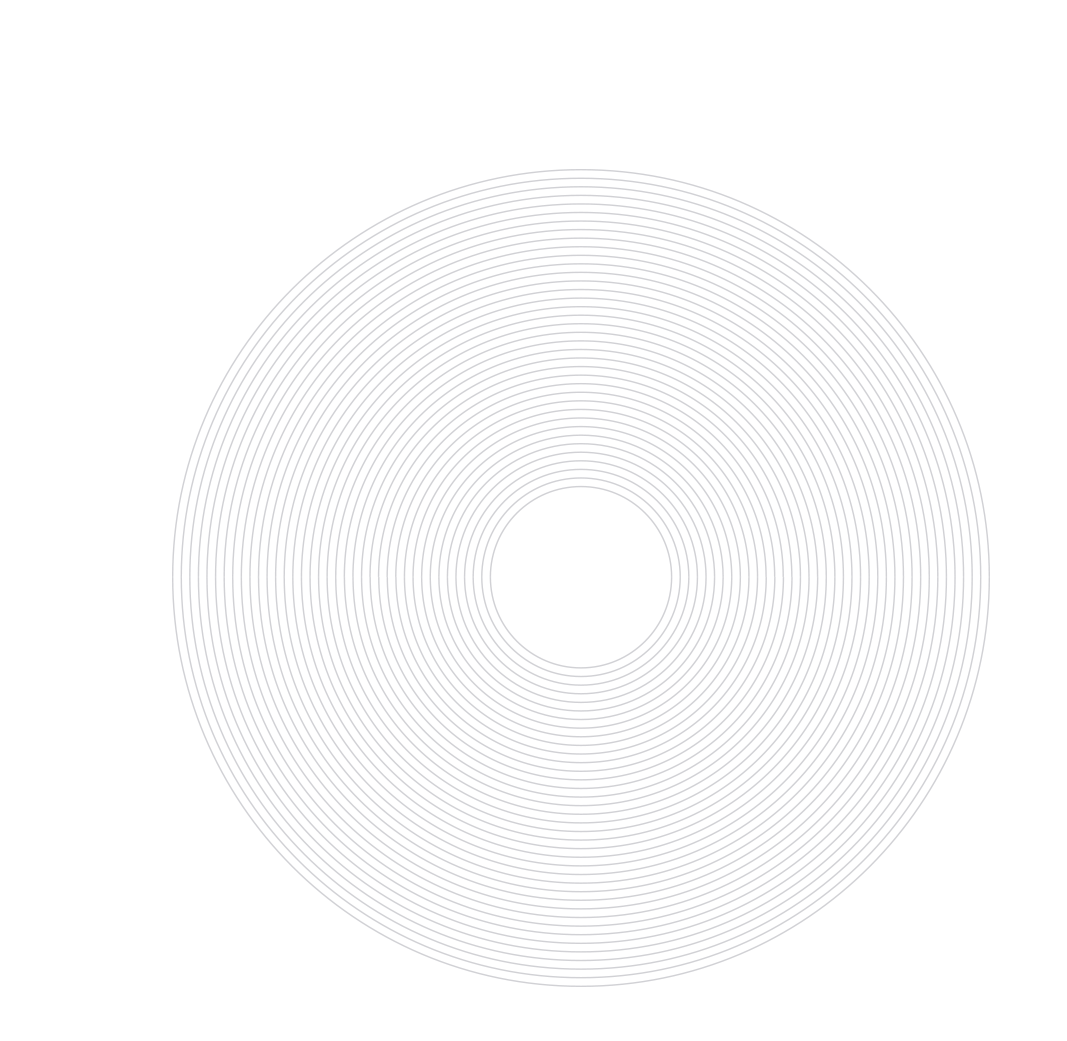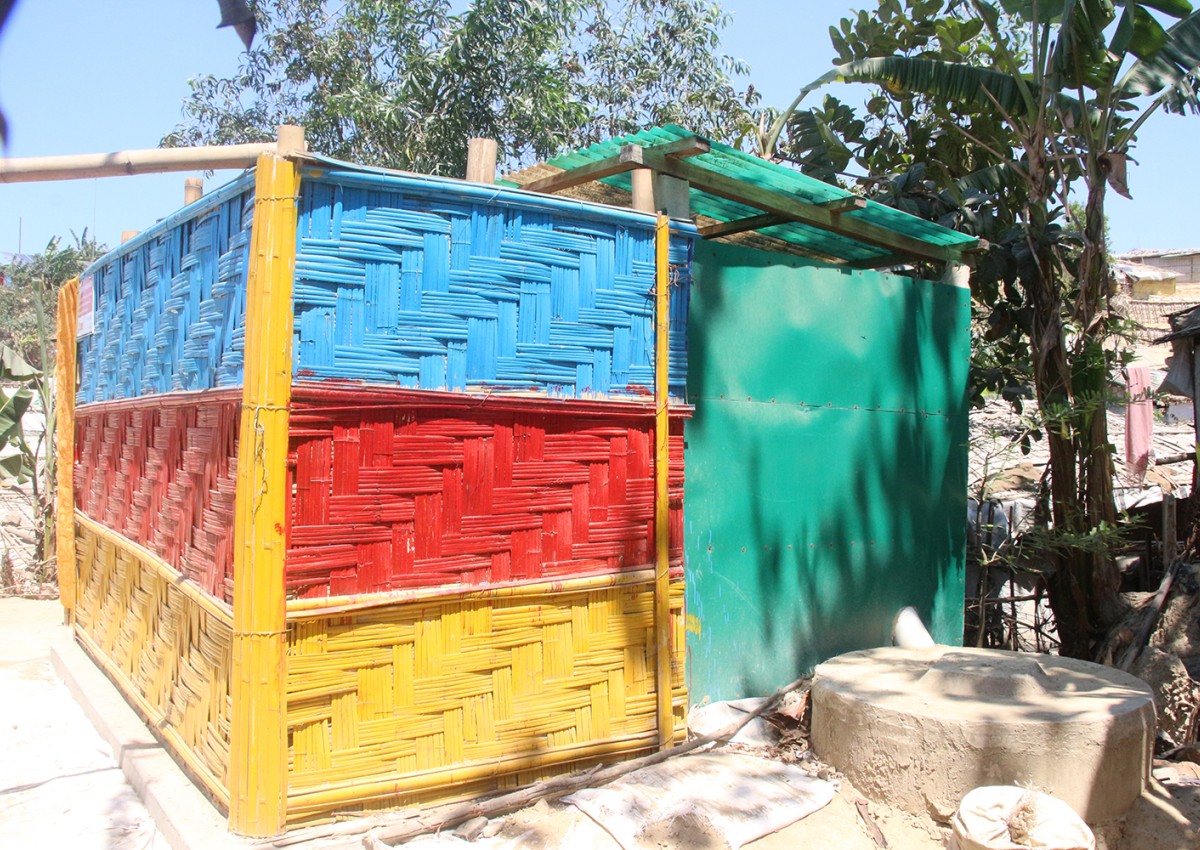





CARE Bangladesh’s Contribution for Menstrual Hygiene Management in Cox’s Bazar
CARE has always focused on women and girls in all the interventions and activities. Health is no exception. For women and girls, Menstrual Hygiene Management (MHM) is one of the key aspects to work on, and is something the country, in fact, many parts of the world are still lagging behind.
In addition to raising awareness on how to tackle menstruation and hygiene during that time of the month; CARE Bangladesh has established one of a kind Menstrual Hygiene Management (MHM) cluster in the Rohingya Refugee Camps. One of the MHM clusters is in Camp 15, where women and girls during their monthly cycle can not only use the washroom, but can also wash clothes, change, and of course, dispose their sanitary napkins in a secured and hygienic way.
 In order to secure the cluster from outsider’s gaze, 6-feet tall bamboo fencing is used, which keeps it safe from any intrusion. ! The inside of these walls are further reinforced with tarpaulin covering so that no one from outside can even peek through
In order to secure the cluster from outsider’s gaze, 6-feet tall bamboo fencing is used, which keeps it safe from any intrusion. ! The inside of these walls are further reinforced with tarpaulin covering so that no one from outside can even peek through
Women and girls in many crowded or conservative communities feel shy to dry their menstrual clothing in sunlight, which is actually a key step for disinfection. They often keep the wet clothes in dark and damp places, making the cloth prone to contamination and infections. The cluster has a proper facility to hang and dry the menstrual clothes for best hygiene practices.


Last but not the least, the bright and joyful colors of the cluster make it a unique, eye-catching installation in the block. The colors make a bold statement not to shy away but to celebrate that time of the month!
MHM in Rohingya Refugee Camp – Minara’s experience
12 year-old Minara, from Rohingya Refugee camp 15 got to know about the MHM facility from one of the CARE WASH volunteers. She used to be quiet anxious during her monthly cycle, but thanks to the CARE Bangladesh staff and volunteers, where she got all the guidance and support regarding the matter.
“I got to know about menstrual hygiene management facility when I, along with a few of my friends, talked to a CARE volunteer. She reached out to us and told us a story about a girl who got sick due to lack of proper knowledge about menstrual hygiene management (MHM). She explained to us what MHM is and how to keep ourselves clean during menstruation. In order to do so, we need to use MHM latrines and bathing facility. I’ve started using the nearest MHM latrines and told my friends about it and they use it as well.” shared Minara happily.

It is clean, hygienic and safe. Before using this facility, I used to be quite worried during my periods, and so were my friends. Now we don’t worry about it at all. We use the MHM latrines, clean our clothes and undergarments with soap and dry those under the sun and then prepare it in a hygienic way to use it safely the next time.” added Minara.
The MHM facilities in Rohingya Refugee camps 15 and 16, under WASH intervention are funded by UNICEF and implemented by CARE Bangladesh.
MHM in Host Communities
After successful interventions of MHMs in Rohingya refugee camps, CARE also introduced the facility to the host communities.
Once such example is Shahina Akter, a 17 year-old girl from Ratna Palong union, Ukhiya Upazila, in Cox’s Bazar. She faced health issues due to lack of poor hygiene practice and maintenance during her menstruation. But with the MHM interventions — the facility and awareness regarding menstrual health management, not only her health has improved, but she was also able to impact her community as well.

“Previously, I never used to wash my menstrual clothes properly and as a result, I faced itching and discomfort most of the time.” said Shahina.
Once she attended a MHM session, organized by ASHAR Alo project of CARE Bangladesh. She learned details about healthy timelines of menstrual cycle; myths or misconceptions; menstrual clothes washing, drying and storing system, the importance of nutritious food during the cycle, MHM during disasters, its relation with safe water and safe sanitation, and many more. Besides adolescent girls, sessions for mothers and guardians were also organized.
She said “I learned a lot from MHM sessions and I liked the ‘cleaning and drying of menstrual clothes’ session the most.” With a smile, she added “Now I use clean and dry clothes during my cycle and it doesn’t itch anymore."
Now she is nominated as a resource person for MHM group in her community. After being nominated she received more elaborate training on the MHM issues. At present, she disseminates the information to her friends on how to wash their menstrual clothes with soap and clean water and dry those in sunny weather and preserve in a clean place for the next use and other hygiene practices.
Previously, nobody talked about menstruation in her area. She said, “In our society, no one discussed MHM issues. It used to be treated as a taboo to be discussed openly. But time has changed now. Women and adolescents are more aware of their overall and health and rights.”
About ASHAR Alo:
CARE Bangladesh is implementing the Action for Supporting Host Communities: Adaptation and Resilience (ASHAR Alo) project funded by USAID to the communities located outside of the refugee camps and in vulnerable locations across Cox’s Bazar with an aim of building community resilience to withstand natural disasters. The project activities are focusing on the unions of Haldia Palong, Jalia Palong, Palong Khali, Ratna Palong in the Ukhiya sub-district, and Dakkhin Mithachori and Chakmarkul unions in the Ramu sub-district. CARE aims to strengthen the host communities' resilience, by enhancing community-based systems for Disaster Risk Reduction (DRR), upgrading infrastructure, and providing livelihood opportunities, across shelter, settlement, and WASH sectors.
Words from the other side:
While CARE and other organizations works for the people in the communities to make their lives easier, such with the menstrual hygiene, the entire experience would be incomplete if the side of the service provider gets unheard…
Sharma Ojha is a field facilitator- Water, Sanitation and Hygiene (WASH) and Community Feedback and Response Mechanism (CFRM) focal of camp 15 and 16.
 MHM is a vital part of her job. A typical day in her life is going to camps, building capacity to WASH volunteers regarding personal and menstrual hygiene and related awareness, collecting feedback of community people regarding any issues, solving them; monitoring MHM related sessions that volunteers conduct to raise spread knowledge and spread awareness and many more. She also informed that she and her team constantly perform needs assessment of what is needed in the community, for example – the need of hygiene kits, repairing washrooms, etc. They also closely observe the behavior change patterns in community people after any awareness or service is given to them.
MHM is a vital part of her job. A typical day in her life is going to camps, building capacity to WASH volunteers regarding personal and menstrual hygiene and related awareness, collecting feedback of community people regarding any issues, solving them; monitoring MHM related sessions that volunteers conduct to raise spread knowledge and spread awareness and many more. She also informed that she and her team constantly perform needs assessment of what is needed in the community, for example – the need of hygiene kits, repairing washrooms, etc. They also closely observe the behavior change patterns in community people after any awareness or service is given to them.
The MHM facilities were established by taking community people’s feedback into account, to maintain safety, hygiene and privacy of the women and girls. At present, CARE has established more than 80 MHM blocks in camp 15 and 16.
Ojha shared one of her remarkable memories regarding menstruation. It was during her initial days with CARE, in the camp, back in 2020. She unexpectedly had her period before her due date and did not have a pad with her that time. She could not get anywhere nearby and also did not have quality latrines around. She said, “Although I managed somehow with tissue papers, but that experience left me with a realization that I need to work more dedicatedly for establishing women-friendly hygienic washrooms that can be used by everyone. With the collective efforts, one was built within a week and when I used it, I was at ease. The female WASH volunteers, women and girls in the community were very happy to use it as well and it felt great to see their happiness.”
 Women and girls in Rohingya community are very conservative. Therefore, when they share any problem regarding their hygiene or menstruation, it means they have reached to the worst point of suffering and they have their back against the ropes. That’s why their issues are solved with highest priority. She and her team try to solve the issues within 72 hours. But sometimes there are challenges when there’s a mass need of hygiene kits, or complicated repairing- when the process sometimes gets quite lengthy.
Women and girls in Rohingya community are very conservative. Therefore, when they share any problem regarding their hygiene or menstruation, it means they have reached to the worst point of suffering and they have their back against the ropes. That’s why their issues are solved with highest priority. She and her team try to solve the issues within 72 hours. But sometimes there are challenges when there’s a mass need of hygiene kits, or complicated repairing- when the process sometimes gets quite lengthy.
Ojha keeps on working dedicatedly days in and days out. She shared, “the fact that I’m working with CARE Bangladesh, in the largest refugee camp in the world, where resides one of the most vulnerable communities in the world- Rohingya refugees. On top of that, women are more marginalized. So working for them is very rewarding and inspiring.” She also added, “Although it [menstruation] seems like a lifelong struggle for women, but this a very normal and natural process. From the very beginning it has been treated such that men shouldn’t know about this and also left ignored and unknot prioritized. People say that previously there wasn’t much discussions about period, then why so much to talk about it now? Whereas, any discomfort or unhygienic menstrual health can lead to increased cervical cancer, which might get fatal if left untreated, impacting the nation eventually. Men need to know about it as well. Now it’s high time to think about menstruation and the first step to think is to talk about it.”
© Copyright 2026 CARE Bangladesh. Powered By Bangladesh Online